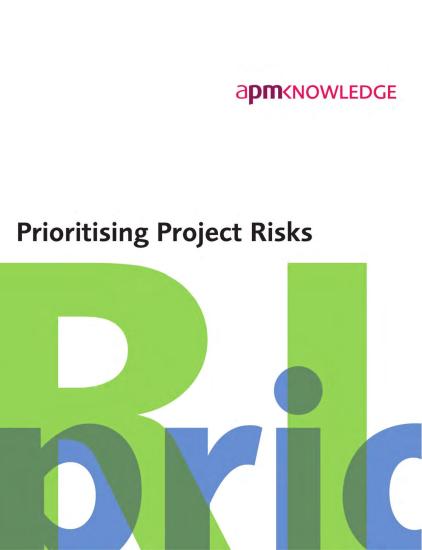
Rating: Not rated
Tags: Project Management, APM, Lang:en
Summary
Everyone agrees that projects are risky, which is why risk
management has become an integral part of the management of
projects. However, projects are not equally risky, and not
all risks deserve equal attention. Managers at all levels
need to focus their efforts on managing the most important
risks and the most risky projects. An effective risk management process must include a sound
approach to prioritisation of risks which recognises the
challenges of dealing with the uncertainty associated with
all risks. In many organisations, risk prioritisation is
simplistic, using techniques which do not provide sufficient
understanding of the risk exposure. Such techniques fail to
support robust risk-based decisionmaking. This guide addresses the shortfall in current practice by
reviewing available techniques for prioritising project risks
and making clear recommendations on when they should be used.
A wide range of risk prioritisation methods are presented,
and readers will find much here to help them make sense of
the risk challenges they face. Prioritising project risks is
not a simple matter, and there is no one-size-fits-all
solution. However, careful and appropriate use of the
techniques discussed in this guide will provide project
managers and their stakeholders with a sound basis for
prioritising and managing risks effectively.